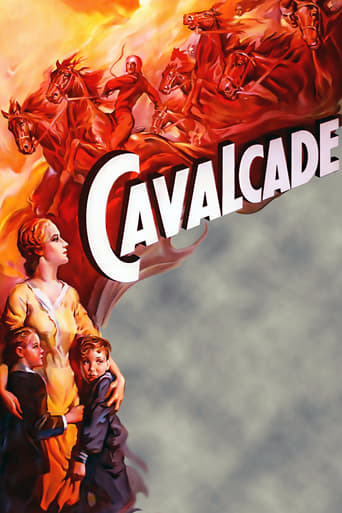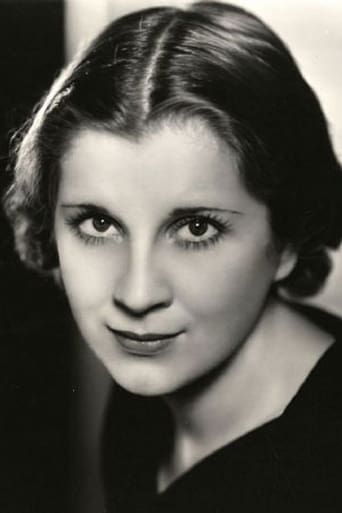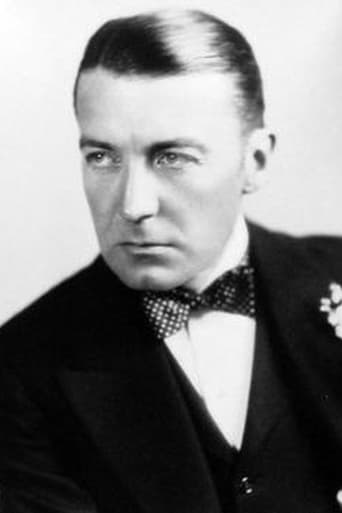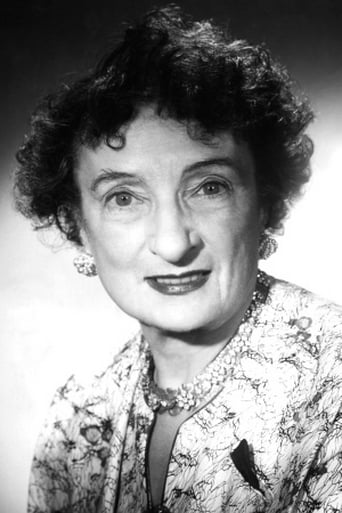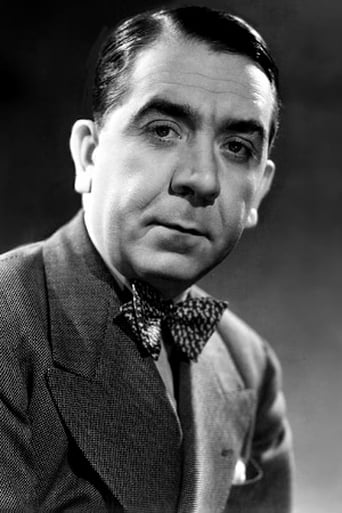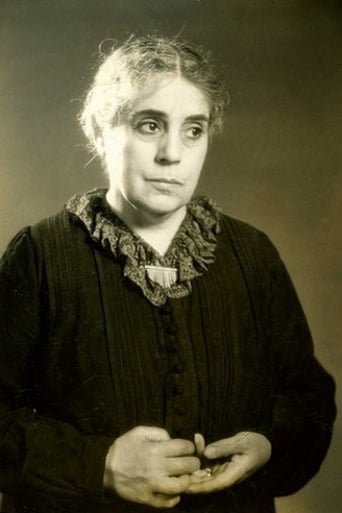ada
the leading man is my tpye
StunnaKrypto
Self-important, over-dramatic, uninspired.
Gutsycurene
Fanciful, disturbing, and wildly original, it announces the arrival of a fresh, bold voice in American cinema.
Helllins
It is both painfully honest and laugh-out-loud funny at the same time.
arthur_tafero
This is not a bad film; it has it's moments. I liked Joey (the alter ego of Noel Coward in the film; one writer always recognizes another writer's alter ego), and I liked Fanny Brice (I mean Bridges). This is a good anti-war film. It is also an anti-religious film (note the sparse crowd in the church after the war). Coward is trying to tell us that none of these institutions have the answer. Wars and history repeats itself; eating families, loves, husbands, wives, children and anything else that gets in its way. Mankind is obviously too stupid to learn from history. This is one of Coward's messages. For 1933, King Kong was a far more entertaining film, with far more compelling scenes and direction. Dinner at Eight was also much better than this soap; albeit good soap. For ladies only; and old ladies at that.
JohnHowardReid
For a meticulous yet dazzling recreation of London life and times from 1900 to 1930, "Cavalcade" cannot be beaten.It is astonishing that a film so honored and so popular (one of the top-grossing movies of the year) in its day should now be so rarely seen. This has nothing to do with the film's age ("Grand Hotel" which won Best Picture the previous year, is not only a frequent attraction on TV and repertory cinemas but has always been available on DVD and video) but everything to do with studio politics. When Zanuck's 20th Century acquired Fox, the new management virtually junked all the Fox product. "Cavalcade" was never theatrically re- issued and only the most half-hearted and perfunctory attempts were made to sell the movie to TV. I am forced to rely therefore on memory.What I remember most about "Cavalcade" is Herbert Mundin's performance. If ever a role seemed to have been created specifically for a particular actor, this is it. The mating of "Alfred Bridges" and Herbert Mundin was truly a marriage made in playwright's heaven. There was always an air of melancholy about Mundin, even at his most wheedlingly ingratiating. Producers didn't know quite what to do with him. He was comic — and sympathetic in a way — but you were wary of him. He wasn't only a closet cynic, he had a genuine melancholia, a gnawing self-destructiveness. Needless to say, Mundin was often miscast or placed in roles that did not allow full expression of his unique abilities (for example, as a miller in The Adventures of Robin Hood). Undoubtedly, Cavalcade is his greatest triumph.The other players are earnestly sincere (perhaps far too earnest in fact), but nowhere near Mundin's full-rounded dimension.I remember Cavalcade as lavishly produced, but still somewhat of a photographed stage play: Talkative, even static at times, and more than a trifle old-fashioned. Perhaps I am wrong. Maybe my memory is playing me false about this. I hope so. But I am certainly not wrong about Mundin. I hardly remember Diana Wynyard at all, and Clive Brook is hazy (pleasingly voiced, but a bit stiff in posture); but Mundin's characterization is as vivid and compelling and unforgettable as any of the great Arliss, Barrymore or Laughton performances of the 30's.
grantss
Interesting chronology of early-1900s English history and life.The English experience, from 1899 until 1933, seen through the eyes of an upper-middle class family, the Marryots. We also, to an extent, see the world from the eyes of a working class family, the Bridges. Events covered include the Second Anglo-Boer War, the death of Queen Victoria, the sinking of the Titanic, World War 1 and its aftermath.Interesting, from an historical perspective and how the average Englishperson perceived these events and was caught up in them. Quite dry though - the degree of engagement is quite limited and it feels more like a series of historic events unfolding than characters whom we have any attachment to being involved in them. However, the lack of engagement in the middle section is made up for by a an emotional and powerful ending which brings everything together.Won the Best Picture Oscar in 1934 (plus Best Director for Frank Lloyd and Best Art Direction).
carleeee
The film follows two London families from the end of 1899 through to 1933, throughout various real-life historical events: the Marryots, an upper-class family; and the Bridges, a family in service who work as the Marryots' live-in maid and butler with their infant daughter. As per the title card, the film is mainly based through the eyes of Mrs Jane Marryot (Diana Wynyard), "a wife and mother whose love tempers both fortune and disaster". I enjoyed the film, it could be the Forrest Gump of its day but more realistic since it covered fewer events and more central characters. Despite their losses, Mr and Mrs Marryot regret nothing come the end of the film and greet their golden years with a philosophical outlook.There is a good mix of drama, romance and a few laughs (Merle Tottenham's overly-nasal character asking "where is Afrey-kerr?" while talking about the Boer War). We are also treated to different perspectives of the events, comparing a young woman thinking how wonderful it is seeing all their men off to war with an older woman stating she was just wondering how many of them would come back alive; as well as comparing the servants downstairs and the family upstairs as Downton Abbey did in a more recent example. I liked how they used the montage effect similar to All Quiet on the Western Front during scenes from the War. Scenes showing emotion or grief tended to be over-done or skimmed over, perhaps to avoid dragging the mood.
